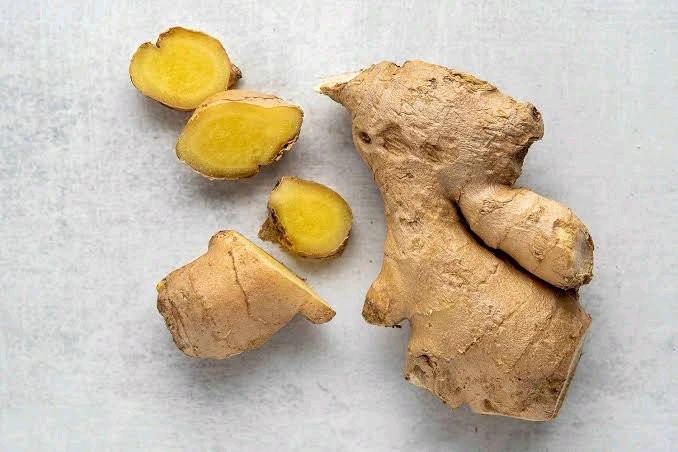Ginger has long been known as a medicinal herb that can be used to treat a variety of ailments including migraine headaches, upset stomach, nausea, and colds.
Many of us may not be aware however, that regular ginger consumption may also have beneficial effects on our kidneys and liver.
In recent years, it has become increasingly evident that regular ginger intake can improve overall kidney and liver health.
According to webmd, The active ingredients in ginger, such as gingerols and shogaols, have been associated with beneficial effects on the liver and kidneys.
Gingerols are the main active ingredient responsible for ginger’s anti-inflammatory properties, and shogaols are compounds found in ginger that have been reported to have anti-cancer and anti-tumor activities. These compounds have been found to act as antioxidants, helping to protect the cells from damage caused by free radicals.
Likewise, ingredients such as saponins, which are present in high concentrations in ginger, help protect the liver and kidneys from DNA damage and help break down toxins that may be present in the body.
Regular consumption of ginger has been found to have both protective and curative effects on the liver and kidneys.
In the liver, ginger helps to protect the cells from damage caused by toxins and to reduce the secretion of certain liver enzymes, which can lead to greater efficiency in the body’s ability to metabolize certain substances.
Research has also shown that regular ginger intake helps to reduce the lipid levels in the liver, which can reduce the risk of developing fatty liver disease.
The kidneys also stand to benefit from regular ginger consumption. Studies have found that ginger helps to reduce levels of creatinine and urea enzymes in the kidneys, which can result in healthier renal function.
Additionally, regular consumption of ginger has been linked to improved blood flow within the kidneys, which can help to reduce the risk of renal failure.
Not only has the evidence showing the protective and curative benefits of ginger on the kidneys and liver been shown in many studies, but ginger has also been found to have positive effects on abdominal pain associated with kidney and liver diseases.
Many traditional Chinese and Japanese medicine practitioners have used ginger to treat abdominal pain related to kidney and liver diseases for centuries; and modern research has been able to confirm its effectiveness for these conditions.
Additionally, ginger root extracts have been found to be effective at reducing the severity of symptoms associated with kidney and liver diseases, such as jaundice and urinary tract infections.
Ginger has also proven to be an effective means of treating several issues associated with the kidneys and liver that are caused by medications. In particular, regular ginger consumption can help to reduce the side effects of certain antibiotics that are used to treat kidney and liver diseases, such as side effects such as nausea and vomiting. By reducing these side effects, ginger can also help to reduce the risk of hospital readmission for patients who are taking such medications.
It is important to note, however, that while regular ginger consumption can provide many beneficial effects on the kidneys and liver, it is not without risks. Overconsumption of ginger can lead to digestive upset and, in excessive amounts, can cause liver damage.
Therefore, it is very important to consult with a health professional before starting a regular ginger regimen.
Additionally, it’s important to avoid anything that might interfere with the absorption of the active ingredients in ginger, such as caffeine and alcohol, as this may reduce the benefits of the herb.
Regular ginger consumption has shown to have many beneficial effects on the kidneys and liver that can help to improve overall kidney and liver health.
It has been shown to protect the cells from damage, reduce levels of certain liver enzymes, reduce certain lipid levels, improve blood flow in the kidneys, and reduce the severity of symptoms associated with kidney and liver diseases.
However, it is important to remember to consult with a healthcare professional before starting a regular ginger regimen so as to avoid any potentially dangerous side effects or interactions with other medications.


